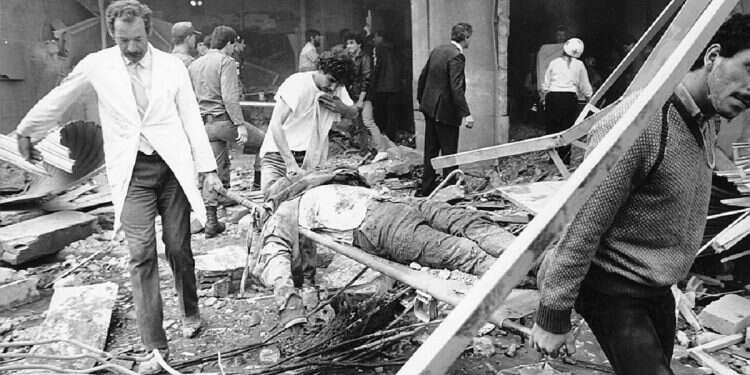The recent killing of a Hezbollah leader, wanted for his involvement in the 1983 Beirut bombings that claimed over 350 lives, has evoked a range of emotions among survivors and victims' families, The New York Times reported. The incident has brought little resolution but has resurfaced decades of pain for many Americans affected by the attacks.
The US had placed a multimillion-dollar bounty on the head of Ibrahim Aqil, who had survived multiple assassination attempts. He was sought for his role in two devastating bombings in Beirut in 1983: an April attack on the US Embassy that killed 63 people, including 17 Americans, and an October suicide bombing of the US Marine Corps barracks that resulted in over 300 deaths, including 241 American service members.
For survivors, the memories of these attacks remain vivid. "Every time I pick up the paper or watch the news about another bombing, it opens up wounds," Michael Harris, a Marine veteran, told The New York Times.
The worst day of my life. My 24 yr old brother was killed along with 240 other marines, soldiers, and a sailor. This tore my family apart, and we never recovered. The Israelis finally gave me some peace for killing the animal responsible for the attack. Too bad our government…
— B. Alexander (@bdalexander46) September 21, 2024
Elisa Camara, 58, from Daytona Beach Shores, Fla, whose brother Mecot was among the Marines killed in the October bombing, expressed mixed emotions about the Hezbollah leader's death. "Justice is served," she said. "That's one less evil person in the world." However, she emphasized the need for continued efforts to combat terrorism to prevent further loss of life.
The bombings left many families without closure through the legal system. Valerie Giblin, 61, of Smithfield, RI, whose husband Timothy died in the barracks attack, shared her unresolved grief. "I was 20 years old," she told The New York Times. "I never remarried. I'll be his wife until the day I die." Upon hearing the news of the Hezbollah leader's death, Giblin's reaction was, "It's about time."
Lisa Weide, 62, from Daytona Beach, Fla, who lost her brother Brett Croft in the barracks attack, echoed similar sentiments. "As cruel as it may sound, I'm glad he's dead," she said.
Aqil's death comes at a time of heightened tensions in the region, with the ongoing Israel-Hamas war that broke out after Hamas' deadly attack on Israel on Oct 7. Since then, Hezbollah has continuously attacked Israeli northern communities, further escalating the conflict.
"My 24-year-old brother was killed along with 240 other marines," a user shared on X. "This tore my family apart, and we never recovered. The Israelis finally gave me some peace for killing the animal responsible for the attack. Too bad our government wasn't up to the challenge."




